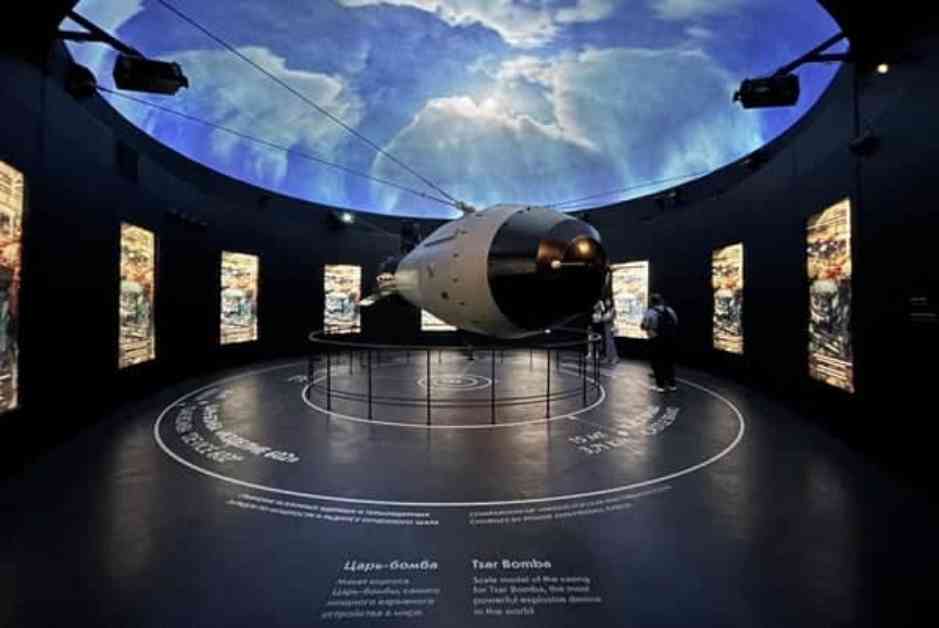Russian Nuclear Test Sites on High Alert: Warning to the West
Tensions between Russia and the West have reached a critical point as Vladimir Putin places his nuclear test site in Novaya Zemlya on high alert. This move comes in response to what Russian officials perceive as provocations from NATO and Western countries. The situation has escalated to the point where Sergei Ryabkov, a senior Russian diplomat, has openly accused the West of pushing Russia to take drastic measures.
The Russian state media outlet TASS reported Ryabkov’s statement, where he emphasized that Russia’s position on nuclear tests remains unchanged. While Russia has the capability to conduct such tests, they have refrained from doing so, citing the need for reciprocation from the United States. Ryabkov’s message underscores the delicate balance of power in the nuclear arena and the importance of mutual restraint.
Russian Nuclear Test Site on High Alert
The decision to put the nuclear test site in Novaya Zemlya on high alert signifies Russia’s readiness to respond to perceived threats from the West. The strategic location of this site, located in the Arctic region, has long been a point of contention between Russia and NATO. The recent actions by Russian authorities highlight their commitment to safeguarding their national security interests in the face of external pressures.
The infrastructure on Novaya Zemlya has been fully prepared for any potential nuclear testing, according to reports from Russian officials. This readiness serves as a deterrent to any aggressive actions from Western powers and reinforces Russia’s position as a nuclear power on the global stage. The move to heighten alert status is a clear message to the West that Russia is prepared to defend its interests at all costs.
Tensions with NATO at an All-Time High
The escalating tensions between Russia and NATO have raised concerns about the potential for a military conflict in the region. The deployment of troops and military equipment by both sides has heightened the sense of urgency and created a volatile situation. The recent statements from Russian officials about the readiness of their nuclear test site only add to the uncertainty surrounding the situation.
Sergei Ryabkov’s accusation of Western provocation underscores the deep-rooted mistrust between Russia and its Western counterparts. The lack of mutual understanding and communication has fueled the current crisis and made it difficult to find a peaceful resolution. As both sides continue to engage in a war of words, the risk of a miscalculation leading to a larger conflict remains a significant concern.
The Stakes for Ukraine and Western Allies
The situation in Ukraine has become a focal point of the tensions between Russia and the West, with both sides vying for influence in the region. The recent calls for Western allies to provide support to Ukraine in the form of long-range missiles have added a new dimension to the conflict. The use of Storm Shadow and SCALP cruise missiles by Western powers could potentially tip the balance in favor of Ukraine.
British Foreign Secretary David Lammy’s plea for Western allies to show “fortitude” in supporting Ukraine reflects the high stakes involved in the conflict. The ability of Ukraine to defend itself against Russian aggression will depend on the level of support it receives from its allies. The use of advanced weaponry by Western powers could change the dynamics of the conflict and put pressure on Russia to reconsider its actions.
In conclusion, the heightened alert status of Russia’s nuclear test site and the escalating tensions with NATO are a cause for concern in the international community. The delicate balance of power in the region and the potential for a military conflict underscore the need for diplomatic solutions to resolve the crisis. The fate of Ukraine and the actions of Western allies will play a crucial role in determining the outcome of the situation.












